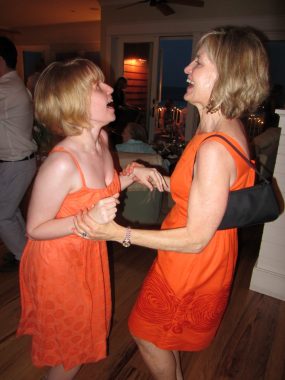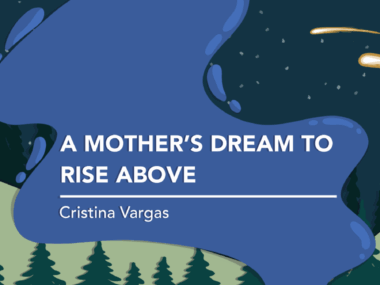Her Light Brightened the World
Written by |

Equal parts beautiful and bold, my sister, Taylor, knew how to get what she wanted, whether through earnest effort or effortless charm. The youngest member of her family by 11 years and often the youngest student in her class, Taylor nevertheless wrapped everyone around her little finger and didn’t let go. As a toddler, she routinely got the best of our brother. At age 3, she taught herself to read. At 5, she pirouetted onto a stage and snatched the spotlight.
Then at the start of second grade, the lights dimmed. Taylor’s suddenly faltering vision marked the start of a long, tortuous slide called Batten disease.
Since having major ankle surgery in January, I’ve devoured books — memoirs and novels, comedies and mysteries. This week, I’m reading Anthony Doerr’s “All the Light We Cannot See,” winner of the 2015 Pulitzer Prize for Fiction and partly the story of a blind French girl in occupied France during World War II. I don’t know why I waited so long to read its gorgeous prose. Two-thirds into the tale, Doerr constructs a scene in which Marie-Laure, the blind girl, and her uncle listen to Vivaldi on a forbidden radio in a secret attic:
“In the center of the freckles those two eyes hang unmoving like the egg cases of spiders. They do not track him, but they do not unnerve him, either; they seem almost to see into a separate, deeper place, a world that consists only of music.”
In the real world about 70 years later, my sister similarly inhaled music. Sound, like touch, taste, and smell, was a lifeline to the rest of humanity. Taylor spent more than half of her short life in the dark, but when her vision failed, her other senses worked relentlessly. She had an astounding ability to not just navigate spaces (often on memory alone), but also connect with the life happening within them. She rifled through stacks of CDs, all labeled with raised Braille dots, and later learned how to operate a crystal pink iPod. She listened to entire movies and, until she lost the gift of speech, sang entire songs.
That attic scene from Doerr’s novel reminded me of a night on South Carolina’s Folly Beach in 2012, six years after Taylor’s Batten disease diagnosis and six years before she died. My sister’s mobility had declined enough that she needed help walking to the chairs set up in soft sand for a wedding ceremony. However, at the reception later, Taylor found her way to the middle of the dance floor. As I wrote on my blog days later, out there, her light burned brightly.
Mobility is a gift — something I’ve often thought about while recovering from my operation. I’m grateful for the wonders of modern science and orthopedic medicine, and if I’m lucky, I may run my next race as early as eight months post-surgery. But Batten disease has no such answers, and my sister spent the final years of her life in a wheelchair.
Perhaps that’s why I’ll never forget moments like that night on the ocean. I can still smell the salt breeze and the white wine. I can still hear the beat of the music and the cacophony of happy voices. But mostly, I can still see my sister, her smile broad, her eyes laughing, her light brightening the world.

From left, Taylor and her mother, Sharon, dance at a wedding reception in 2012. (Courtesy of Laura King Edwards)
Note: Batten Disease News is strictly a news and information website about the disease. It does not provide medical advice, diagnosis, or treatment. This content is not intended to be a substitute for professional medical advice, diagnosis, or treatment. Always seek the advice of your physician or other qualified health provider with any questions you may have regarding a medical condition. Never disregard professional medical advice or delay in seeking it because of something you have read on this website. The opinions expressed in this column are not those of Batten Disease News or its parent company, Bionews, and are intended to spark discussion about issues pertaining to Batten disease.






Leave a comment
Fill in the required fields to post. Your email address will not be published.